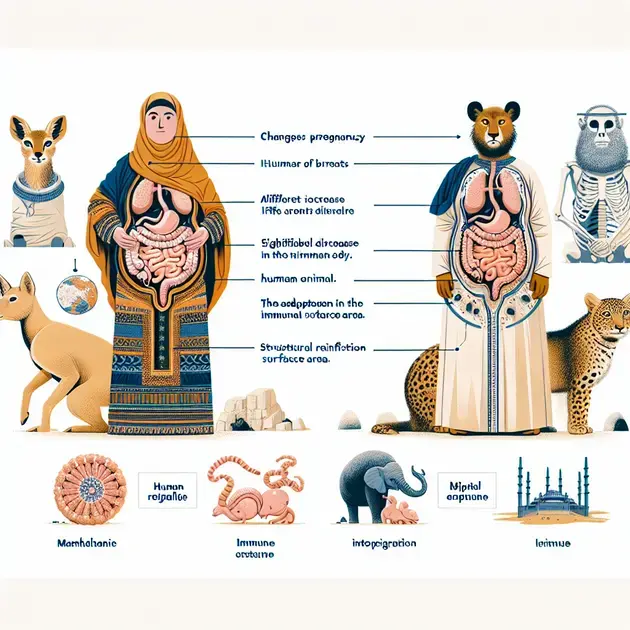When women become pregnant and start nursing their babies, their bodies go through a remarkable transformation to ensure the well-being of both mother and child.
This natural adaptation is observed in mammals across the evolutionary spectrum. However, recent research has shed light on an unexpected discovery – the intestine also undergoes significant changes in pregnant and nursing females, leading to a doubling of the intestinal surface area and a striking structural reorganization.
The intestinal system plays a crucial role in nutrient absorption, digestion, and maintaining a healthy immune system. With the demands of pregnancy and nursing, the body adjusts to provide optimal conditions for the mother and developing baby. Until now, the focus has primarily been on well-known changes in organs such as the breasts and the immune system, but researchers have now turned their attention to the intestines.
A multinational team of scientists conducted a comprehensive study to investigate how the intestine adapts during pregnancy and lactation. The results were groundbreaking, revealing a complete transformation of the intestinal structure. The surface area of the intestine doubled, allowing for enhanced nutrient absorption and support for the growing fetus or nursing baby. This expansion of the intestinal surface area ensures that the necessary nutrients are adequately absorbed to sustain both the mother and the child.
Furthermore, the researchers noted a significant reorganization of the intestine’s structure during this period. The intestinal lining underwent alterations in cell composition, glandular distribution, and overall tissue organization. These changes indicate a concerted effort by the body to optimize nutrient absorption and strengthen the protective barrier against harmful bacteria and pathogens.
The findings of this study have far-reaching implications for our understanding of maternal and child health during pregnancy and breastfeeding. Although further research is necessary to fully comprehend the underlying mechanisms driving these changes, this discovery underscores the complexity and adaptability of the female body.
This newfound knowledge could have potential applications in the development of specialized dietary programs and supplementation for pregnant and nursing women. By recognizing the unique needs of expectant and lactating females, healthcare professionals can offer tailored support to promote the health and well-being of both mother and child.
In conclusion, the natural process of pregnancy and nursing involves remarkable adaptations within a woman’s body. The recent discovery that the intestine undergoes profound changes during these periods provides valuable insights into the intricate relationship between maternal health and infant development. As scientists continue to unravel the mysteries of this evolutionary phenomenon, we can expect to witness advancements in the field of maternal and child care, ultimately providing a healthier start to life for both mother and baby.
